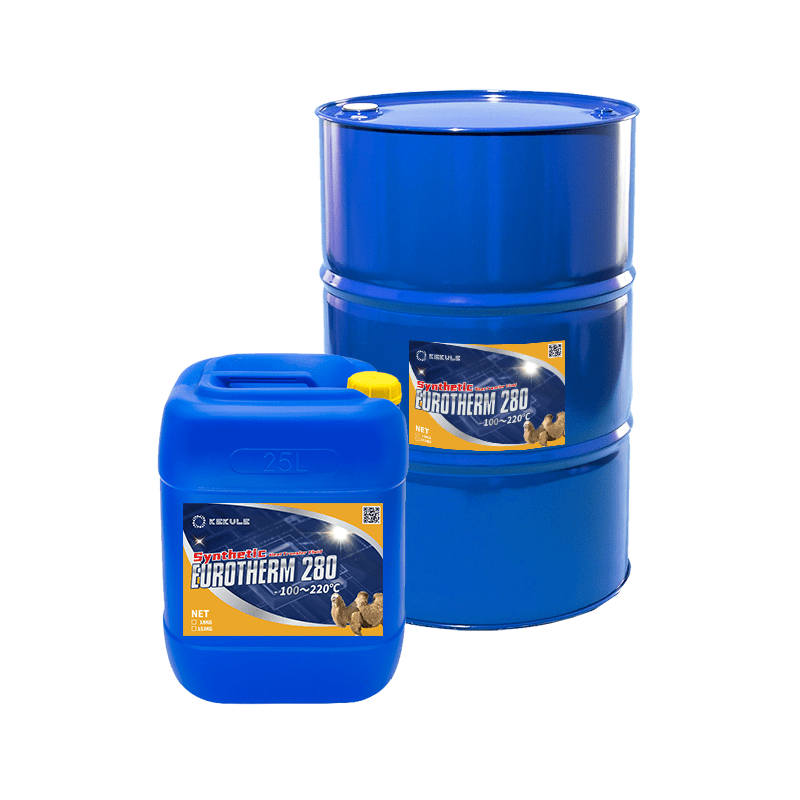The Relevance of Thermal Security in Heat Transfer Fluid Option
The Relevance of Thermal Security in Heat Transfer Fluid Option
Blog Article
Why Warmth Transfer Fluid Is Vital for Optimizing Energy Transfer in Systems
The duty of warmth transfer fluids in enhancing energy transfer is crucial for achieving effective thermal management throughout different commercial sectors. These fluids promote smooth heat exchange, making certain procedures operate within optimum temperature level varieties and reducing the threat of getting too hot.

Function in Thermal Monitoring
Heat transfer liquids play a critical role in thermal monitoring by successfully regulating temperatures in different industrial processes and systems. These specialized liquids promote the transfer of warm in between different elements, ensuring optimal operating conditions and protecting against getting too hot. By maintaining accurate temperature control, warmth transfer fluids make it possible for markets such as chemical production, oil and gas, and power generation to operate securely and efficiently.
The option of a proper heat transfer fluid relies on several aspects, including thermal stability, warmth capacity, and thickness. High thermal security makes certain that the liquid can hold up against extreme temperature levels without weakening, while a high warm ability allows it to absorb and release considerable quantities of warmth - heat transfer fluid. Reduced viscosity lowers the power needed for pumping, adding to total system efficiency
Furthermore, warm transfer fluids are essential in applications like refrigeration, where they aid take in and dissipate warmth during the cooling cycle. In solar thermal energy systems, these liquids capture and transport solar warm to produce electrical energy or give warm water. Their versatility to varied operating problems and capability to keep constant thermal efficiency underscore their significance in industrial thermal monitoring, promoting operational continuity and boosting safety measures.
Enhancing System Effectiveness
To maximize the benefits of thermal administration, boosting system efficiency through the critical use of warmth transfer liquids is vital. By preserving ideal temperature degrees, heat transfer liquids aid ensure that systems operate within their designed parameters, consequently stopping overheating and lowering the risk of part failure.

Sorts Of Heat Transfer Fluids
The variety of heat transfer fluids highlights their crucial role in a series of industrial applications, each customized to satisfy details thermal management demands. These liquids facilitate reliable power transfer and are picked based on vital residential or commercial properties such as thermal security, viscosity, and heat capability. The key kinds consist of water, glycol options, oils, and synthetics, each offering unique benefits.
Water is one of the most usual warmth transfer tool as a result of its high specific warmth ability and low cost. Its use is limited by its freezing and boiling points. Glycol mixes, typically utilized in HVAC systems, provide a lower freezing point, adding adaptability in numerous environments. Mineral oils are preferred for their try this site thermal stability and non-corrosive nature, making them appropriate for high-temperature applications.

Synthetic liquids, including silicone and aromatic compounds, supply extraordinary thermal stability and are utilized in settings requiring extreme temperature level varieties. These liquids make sure premium performance in systems where conventional liquids may fail. The selection of a warmth transfer fluid is important, as it affects system efficiency, safety and security, and durability. Each type must be selected to line up with the operational needs and the particular problems of the application it offers.
Environmental and Economic Advantages
Making use of the ideal heat transfer fluids offers considerable ecological and economic advantages for industrial procedures. By picking fluids with exceptional thermal stability and high warmth capacity, sectors can enhance power efficiency, causing reduced fuel consumption and reduced greenhouse gas discharges. This adds to a smaller sized carbon footprint and lines up with global look at this now sustainability goals. Ecologically pleasant warmth transfer liquids, frequently eco-friendly and non-toxic, minimize the danger of dirt and water contamination in the event of leaks or spills, thereby safeguarding environments and abiding by rigorous environmental policies.
Financially, the appropriate warm transfer fluid can substantially lower operational costs. Liquids with extended lifecycle efficiency lower the frequency of replacements and maintenance, lowering downtime and connected costs. Generally, the strategic usage of optimal warmth transfer liquids supports lasting economic growth and environmental stewardship.
Choosing the Right Fluid
Exactly how does one browse the intricate procedure of picking the ideal warm transfer liquid for industrial applications? Thermal stability guarantees the fluid can hold up against high temperatures without degrading, while compatibility protects against deterioration or various other detrimental responses with system parts.
Additionally, the liquid's heat capability and viscosity are critical. A high warmth ability allows the liquid to soak up and transfer even more power, boosting effectiveness.
Final Thought
The strategic selection and application of warm transfer liquids are essential to enhancing power transfer throughout numerous systems. By making certain high thermal stability and capacity, these liquids supply accurate temperature level control and improve overall system check out here efficiency.
Report this page